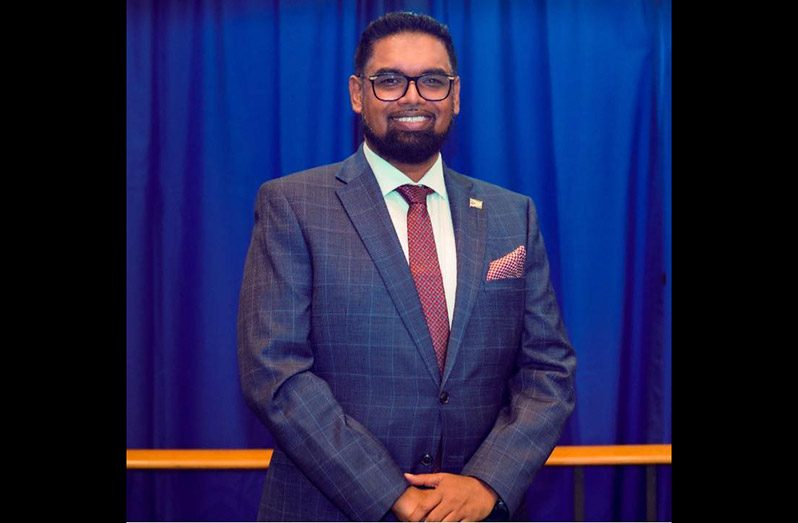–President Ali says, urges leaders to exploit existing brain power
TO remain competitive, developing countries will have to adapt to newer technologies such as artificial intelligence (AI), President Dr. Irfaan Ali has said.
While delivering remarks at the recently held International Forum on African Caribbean Leaders in Manhattan, New York, the Guyanese Head of State urged leaders to explore solutions that will see them being competitive in a world where digitisation is taking over.
“We became uncompetitive in many areas because of the world system. When the world had the capital to go to mechanisation, we didn’t have the capital to go to mechanisation. So, the world mechanized, and we still relied heavily on labour, and we could not compete globally,” Dr Ali said.
Digitisation is the process of transforming analog processes to digital forms. Also known as digital enablement, digitisation is a key step towards modernisation.
He contended that if leaders are not conscious, digitisation can be a new form of inequality for developing countries.
“Today, we are now trying to mechanize and the world is going through digitisation. Is digitisation and AI [artificial intelligence] going to be the new form of inequality between nations?” he questioned.
He pointed out that countries, however, have the opportunity to catch up, but bold steps will have to be made.
“We must look at what are the best technologies available today and we must adopt to those technologies and work backward in bringing the population up to the technology. So that we do not continue to lose decades and decades in catching up,” President Ali emphasised.
He further suggested that countries must invest heavily in their human resources to expand innovation and research.
“Why is that collectively we cannot find the 100 best scientists within the continent and put them into a special fellowship programme and all they do for us is innovate, research and build solutions for us?” he asked.
He stressed that developing countries do have the capacity, however, they lack coherent deployment of brain power and this must be addressed if developing countries are to catch up with the developed world.
“We have the human capacity, we have the capability, and we have the natural resource power. We do have the brain power, we must understand, we have the brain power [but] we have failed to deploy it,” he said before adding,
“Our problem is not brain power, our problem is the failure to deploy that brain power in a collective, coherent manner and this is what we have to do.”
RESHAPE THE DIAGLOGUE
He further urged leaders to first reposition themselves on international platforms.
“Every time we speak, we speak about the challenges we face. We speak about the disadvantages taken and continue to be taken against our system but we don’t speak about what we are doing…our innovation. We do not speak about our potential. We don’t speak about what we could offer in bringing solutions to the table and we have to flip that narrative,” Dr. Ali told the gathering.
He stated that leaders must develop a self-respecting perspective to alter the typical perception of the developing world.
“We have seen the narrative around the world when they speak about Africa and us in the developing world. There are some things that you know really get me angry because sometimes when you listen to the developed world, they believe we have no capacity to manage,” President Ali said.




.png)









